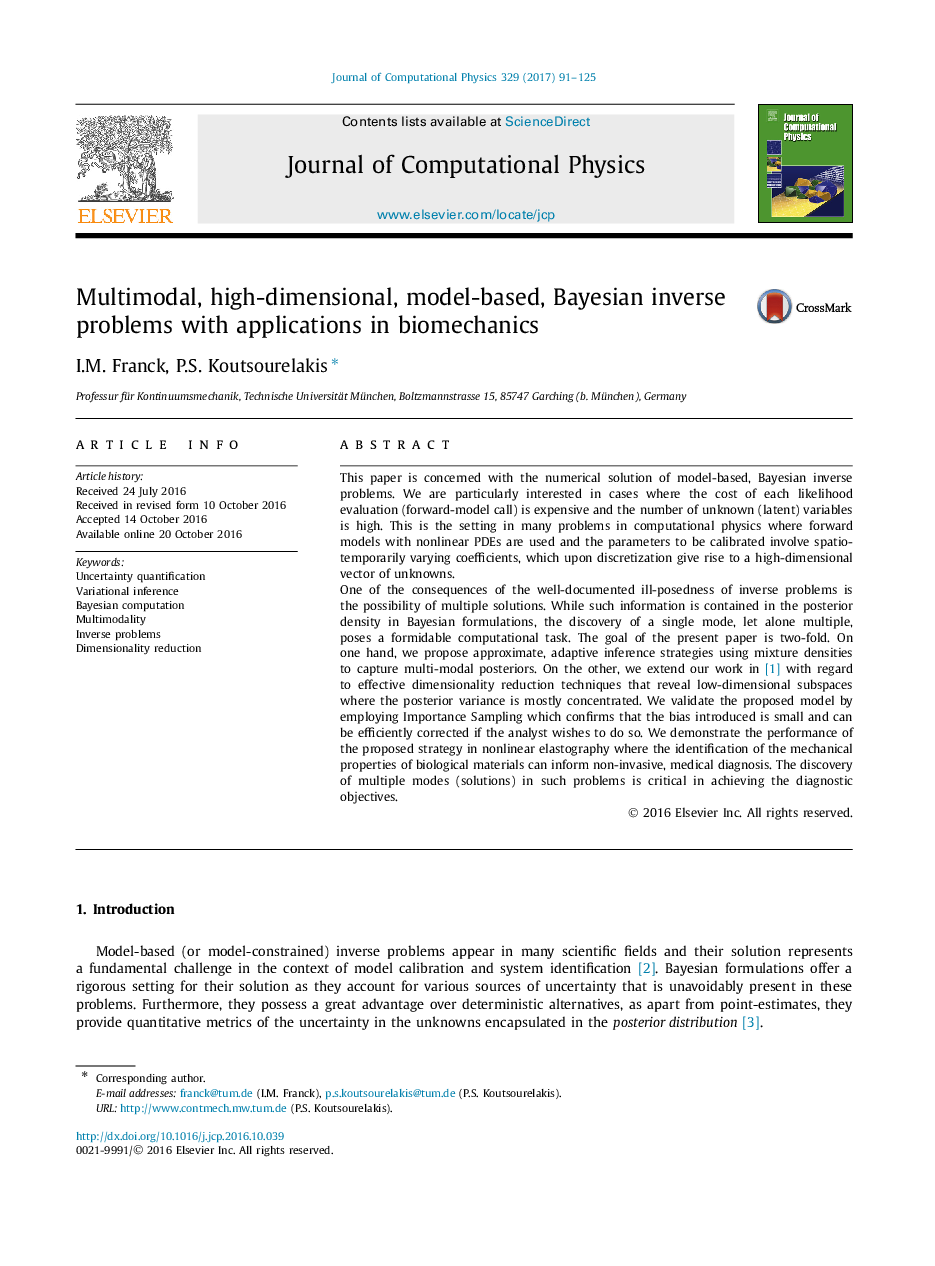| Article ID | Journal | Published Year | Pages | File Type |
|---|---|---|---|---|
| 4967904 | Journal of Computational Physics | 2017 | 35 Pages |
Abstract
One of the consequences of the well-documented ill-posedness of inverse problems is the possibility of multiple solutions. While such information is contained in the posterior density in Bayesian formulations, the discovery of a single mode, let alone multiple, poses a formidable computational task. The goal of the present paper is two-fold. On one hand, we propose approximate, adaptive inference strategies using mixture densities to capture multi-modal posteriors. On the other, we extend our work in [1] with regard to effective dimensionality reduction techniques that reveal low-dimensional subspaces where the posterior variance is mostly concentrated. We validate the proposed model by employing Importance Sampling which confirms that the bias introduced is small and can be efficiently corrected if the analyst wishes to do so. We demonstrate the performance of the proposed strategy in nonlinear elastography where the identification of the mechanical properties of biological materials can inform non-invasive, medical diagnosis. The discovery of multiple modes (solutions) in such problems is critical in achieving the diagnostic objectives.
Keywords
Related Topics
Physical Sciences and Engineering
Computer Science
Computer Science Applications
Authors
I.M. Franck, P.S. Koutsourelakis,
